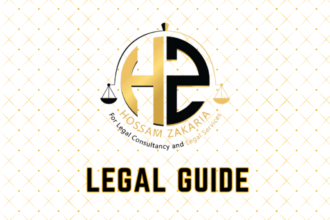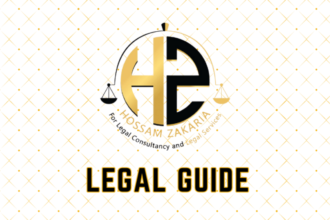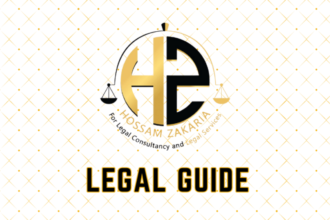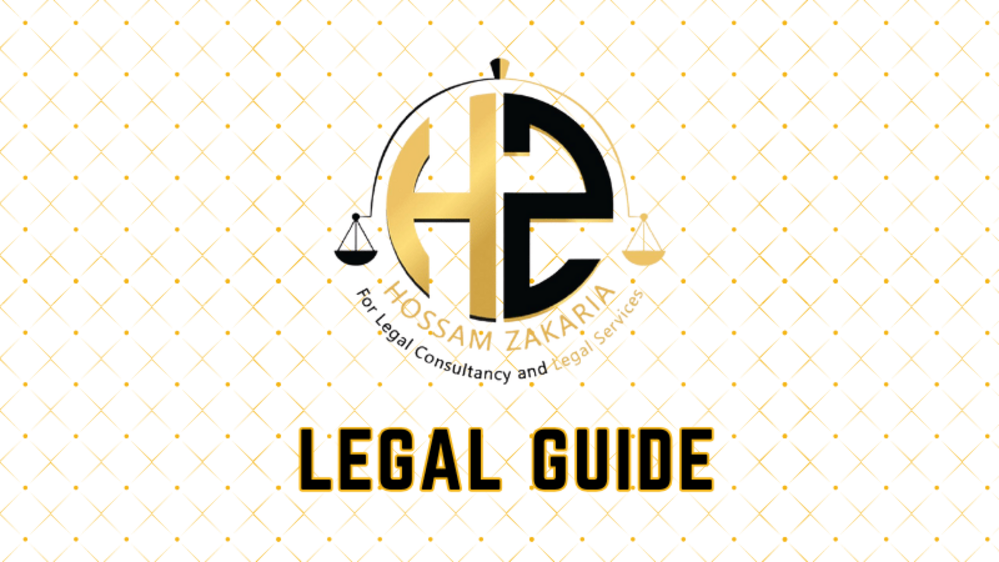Introduction
The aviation sector in the Middle East is undergoing transformative legal evolution, as Qatar implements sweeping updates to its aviation regulatory framework. For UAE-based businesses, legal practitioners, and sector executives, these changes are not isolated: as Gulf economies integrate regionally and align with international standards, Qatar’s legislative innovations create direct and indirect repercussions across the UAE’s legal and commercial aviation landscape. In this consultancy guide, we unravel how the evolution of Qatar’s aviation law framework—interpreted through the prism of UAE law and recent domestic reforms—demands proactive compliance, diligent risk management, and strategic adaptation.
This article presents a comprehensive analysis rooted in official UAE legal sources, including the UAE Ministry of Justice, Federal Legal Gazette, and government ministry directives. Readers will find actionable guidance on adapting to legal changes, benchmarking compliance strategies, and navigating cross-border risks. The focus is not on dictionary definitions, but on expert advisory that powers resilient, future-ready aviation operations in and from the UAE.
Table of Contents
- Qatar’s Aviation Law Overhaul: Context and Overview
- UAE Aviation Law: Regulatory Landscape and Key Legal Updates for 2025
- Comparative Legal Analysis: Qatar vs UAE Frameworks
- Practical Implications for UAE Businesses and Stakeholders
- Case Studies: Cross-border Scenarios and Compliance Pitfalls
- Managing Legal Risks: Compliance Strategies for UAE Aviation Sector
- The Road Ahead: Recommendations for Sustained Compliance in the UAE
- Conclusion
Qatar’s Aviation Law Overhaul: Context and Overview
Background and Key Drivers
In recent years, Qatar has embarked on a comprehensive update to its air law and aviation regulatory structure, culminating in modernized statutes expected to foster international alignment, enhance operational safety, and promote investment. These updates, centered on the New Civil Aviation Law of Qatar (Law No. 15 of 2023), replace aging provisions and introduce best-practice standards governing:
- Licensing and regulation of air operators
- Operational safety standards and airworthiness requirements
- Commercial rights and bilateral air service agreements
- Liability regimes and consumer protection
- Environmental and security protocols
For the GCC region, where interconnection and cross-border flights are routine, these updates serve as a bellwether, signaling an era of harmonization and heightening the need for all market players, including those in the UAE, to scrutinize the compatibility of their policies, contracts, and risk matrices.
Highlights of the New Qatari Framework
Key features of Qatar’s new civil aviation law include:
- Enhanced enforcement powers for the Qatar Civil Aviation Authority (QCAA)
- Stricter penalties and compliance obligations for airlines and service providers
- Streamlined air operator certification and clearer foreign investment rules
- Mandatory insurance requirements and codified liability standards
- Alignment with ICAO (International Civil Aviation Organization) conventions and global standards
These updates will directly influence how UAE-based carriers, lessors, insurers, and aviation service providers structure contracts and compliance programs for cross-border operations with Qatar.
UAE Aviation Law: Regulatory Landscape and Key Legal Updates for 2025
Overview of the UAE’s Aviation Legal Framework
The UAE possesses an advanced and evolving aviation legal system guided by:
- Federal Law No. 20 of 1991 (as amended) – governing civil aviation
- Federal Decree-Law No. 8 of 2019 and follow-up Cabinet Resolutions on Civil Aviation Authority operations
- Regulations and directives issued by the General Civil Aviation Authority (GCAA)
- International conventions adopted by the UAE and regional GCC treaties
Recent years have witnessed a steady stream of reforms, adapting to pressures from international benchmarks, regional developments, and the need to support post-pandemic sector resilience.
UAE Aviation Law 2025 Updates: What’s New?
Anticipated and recent changes to UAE civil aviation laws include:
- Integration of new safety protocols per ICAO’s 2023-2025 Global Aviation Safety Plan
- Amendments to aircraft registration and ownership structures, improving transparency for foreign investors and lessors
- Tightened environmental compliance and carbon emission reporting for UAE-based and foreign operators
- Updated consumer rights obligations in alignment with Cabinet Resolution No. 52 of 2022 (Protection of Air Passenger Rights)
- Harmonization of penalties and fines (per Ministerial Guidelines of 2024) with targeted increases for non-compliance and commercial breaches
These changes deliberately reflect—and now must be interpreted against—the background of Qatar’s updated legal stance, due to the volume of cross-border traffic and contractual reliance between the two jurisdictions.
Table: UAE Aviation Law 2025 – Notable Recent Legal Instruments
| Instrument | Topic | Scope |
|---|---|---|
| Federal Decree-Law No. 8 of 2019 | GCAA Authority and Enforcement | Delegates inspection, sanctions, and licensing |
| Cabinet Resolution No. 52 of 2022 | Air Passenger Protection | Sets new compensation, disclosure, and complaint mechanisms |
| Ministerial Resolution 2024/13 | Safety and Environmental Obligations | Mandates emissions tracking and safety auditing |
Comparative Legal Analysis: Qatar vs UAE Frameworks
Key Points of Alignment and Divergence
Understanding the nuances between Qatar’s and the UAE’s aviation laws equips businesses with the foresight to resolve jurisdictional ambiguities, prevent litigation, and harmonize contracts. Below is a side-by-side comparison mapping pivotal areas.
Table: Qatar Aviation Law 2023 vs UAE Aviation Law 2025 (Key Provisions)
| Legal Topic | Qatar (Law No. 15 of 2023) | UAE (Federal Decree & Cabinet Resolutions) |
|---|---|---|
| Scope of Regulatory Authority | Expands QCAA powers, explicit extra-territoriality clauses | GCAA retains broad powers, clearer coordination with Emirate authorities |
| Air Operator Certification | New, streamlined certification and periodic renewal schedule | Existing regime, but with digitalization/improved due diligence |
| Consumer Protection | Mandatory compensation, proactive obligations to inform passengers | Revised compensation and complaint handling; Cabinet Res. 52/2022 |
| Foreign Investment | Eases restrictions for qualifying foreign operators/lessors | Progressive, but Emirate-level variations persist |
| Environmental Compliance | Incorporates carbon tracking, ICAO standards | Introduces emission monitoring and public reporting |
Professional Insights
For legal practitioners and compliance managers, the main challenges include:
- Reconciling divergent insurance/liability regimes in contracts for flights between UAE and Qatar
- Ensuring dual compliance for mixed fleet operators (subject to both jurisdictions)
- Managing data protection and passenger information (with equivalent, but non-identical, disclosure laws)
Visual Suggestion: Cross-Border Compliance Flow Diagram
Recommend a visual illustrating the decision-making process for legal compliance on UAE-Qatar routes, mapping operator location, type of service, and applicable law at each stage.
Practical Implications for UAE Businesses and Stakeholders
Operational Impacts
Changes in Qatar’s aviation law inevitably trigger operational and compliance adjustments for:
- UAE Airlines/Charter Operators: Required to review licensing documentation, adapt to QCAA’s new certification cycles, and update liability insurance for Qatar-bound flights
- Aircraft Lessors/Financiers: Due diligence procedures must be reconciled with Qatar’s new foreign ownership and asset repossession norms
- Ground Handlers and MRO: UAE-based service providers must ensure contracts comply with both UAE and Qatari standards, especially for safety and personnel certifications
- Corporate Travel/HR Managers: Need to modify travel policies to reflect bilateral restrictions, consumer rights expectations, and insurance adequacy
Contractual and Risk Management Considerations
To prevent disputes or regulatory penalties, UAE businesses should:
- Audit all contracts governing flights or services touching Qatar for compliance with both legal regimes
- Re-examine insurance and liability clauses for alignment with Qatar’s stricter enforcement provisions
- Implement rigorous staff training on new consumer rights and complaint-handling standards
Example Compliance Checklist for UAE Operators
| Task | Status |
|---|---|
| Contract review for jurisdiction/choice of law clauses | Ongoing/Annual |
| Personnel licensing cross-verification | Quarterly |
| Consumer complaint protocol update | Completed |
| Insurance coverage analysis (Qatar-specific) | Pending |
Case Studies: Cross-border Scenarios and Compliance Pitfalls
Case Study 1: Insurance Gap on a Dubai-Doha Route
Scenario: A UAE-based airline’s policy does not reflect enhanced liability minimums introduced by Qatar’s new law. Following a minor incident during a Dubai–Doha flight, a passenger claims damages per Qatari standards.
Legal Analysis & Guidance: The law applicable to passenger claims may be determined by the ticket contract, location of incident, and applicable conventions. UAE operators should ensure that their insurance cover sits above the highest regional threshold, as set by either GCAA or QCAA. Failure to do so risks significant out-of-pocket exposure and regulatory fines.
Case Study 2: Data Disclosure Conflicts
Scenario: A UAE ground handler providing passenger transfer logistics in Qatar is asked by QCAA to release passenger data for security vetting, but UAE data laws (such as Federal Decree-Law No. 45 of 2021 on Personal Data Protection) impose strict cross-border transfer conditions.
Guidance: Operators must map data flows, ensure contractual alignment with both data protection laws, and implement consent protocols for affected passengers. Coordination with both legal teams is essential to avoid breaches in either jurisdiction.
Case Study 3: Consumer Claim Handling — Divergent Standards
Scenario: An Emirati travel agency arranges multi-leg itineraries involving both UAE and Qatari carriers. A delay on the Qatar segment triggers dual claims under different compensation regimes.
Strategic Insight: All-sale contracts should specify fallback jurisdiction, delineate points of responsibility, and educate frontline staff on complaint escalation as per UAE Ministry of Economy and GCAA guidance.
Visual Suggestion: Penalty Comparison Table
Recommend a visual chart demonstrating the range of fines and sanctions for key breaches under each jurisdiction post-2023 reforms. This enhances decision-makers’ understanding of risk exposure.
Managing Legal Risks: Compliance Strategies for UAE Aviation Sector
Risk of Non-compliance
Failure to keep pace with legal developments—particularly those arising outside the UAE—represents a material business risk. For cross-border aviation operations and dependent businesses, potential repercussions include:
- Regulatory fines and operational suspensions (per GCAA and QCAA enforcement powers)
- Contractual disputes, triggering costly litigation or arbitration
- Reputational damage affecting bilateral government relationships and future licenses
- Loss of insurance cover due to policy breaches
Best Practices for Legal Compliance
- Ongoing Legal Monitoring — Institute periodic reviews (quarterly or biannual) of both UAE and Qatari legal updates by engaging specialist aviation counsel or compliance consultants.
- Contract Overhaul — Systematically update all standard agreements with Qatar-linked operations to reflect dual-regime compliance, including governing law, venue, and reciprocal enforcement clauses.
- Personnel Training — Ensure real-time training on regulatory changes for pilots, crew, legal, and HR staff.
- Insurance and Risk Review — Commission specialized brokers to test all policy wording against highest-standard requirements.
- Regulatory Engagement — Foster proactive dialogue with the GCAA and relevant Qatari authorities to anticipate future shifts.
Visual Suggestion: Legal Compliance Process Checklist
Suggest an infographic listing each compliance step, reinforcing the importance of documentation, review cycles, and early intervention when gaps are detected.
The Road Ahead: Recommendations for Sustained Compliance in the UAE
The evolution of Qatar’s aviation laws marks a broader GCC and global trend toward strengthened oversight, heightened consumer protection, and robust environmental regulation. For UAE businesses, this is not a threat, but an opportunity to streamline internal compliance infrastructures, build regional competitiveness, and demonstrate alignment with global best practices.
- Invest in regional legal talent and cross-jurisdictional specialist advisors
- Automate compliance monitoring using digital platforms approved by GCAA
- Upgrade contract management tools for bilateral or multi-jurisdictional flights
- Enhance consumer communication strategies (web, app, and point of sale) to heighten transparency
- Regularly solicit stakeholder feedback on legal compliance programs
Ultimately, proactive alignment is the most cost-effective insurance against the rising tide of regulatory expectations sweeping the GCC aviation market.
Conclusion
As Qatar modernizes its aviation law model, the UAE’s legal and business community must view these changes as integral to their own risk horizons and compliance strategies. Legal innovation in Qatar offers a template and a test; those who adapt early will harness operational agility, reduce legal exposure, and earn the trust of regulators and customers alike. Regular monitoring of Federal Decrees, Cabinet Resolutions, and cross-jurisdictional developments—advised by experienced legal consultants—will be crucial for sustainable success in the aviation sector. Embracing compliance as a core business value shapes a resilient, future-ready aviation industry in the UAE and beyond.



